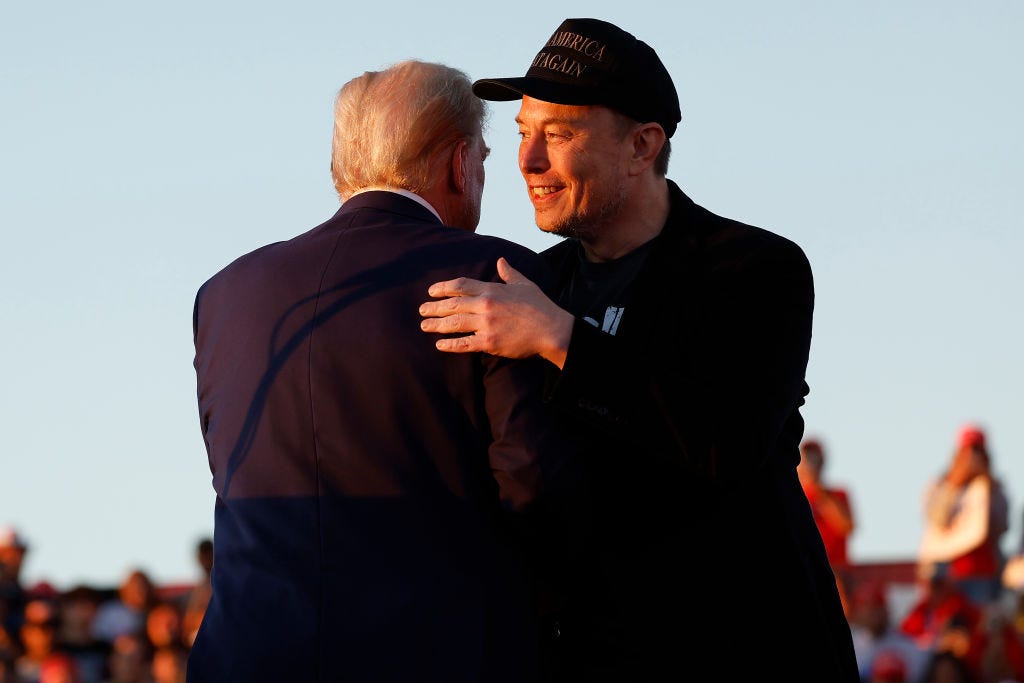Meet Elon Musk, Our New Shadow President
From making Ukraine policy to destroying the administrative state at home, is Musk the real power behind the throne – and how much will he profit from his new status?

Donald Trump may be the president-elect, but he got there by elevating Elon Musk practically to the level of co-running mate. The richest man in the world – who is tens of billions of dollars richer since Trump’s win – quickly eclipsed Vice President-elect JD Vance in the MAGA hierarchy. On the campaign trail, Musk merged the roles of mega-donor, surrogate, campaign strategist, celebrity endorser, and right-wing social-media influencer to a degree that made the Republican ticket as much about Musk and his reactionary, tech-futurist ambitions as it was about Trump and his doomer portrait of a rotten America overrun by migrants and crime.
Empowered but doddering, the oldest man to be elected president will likely take on a familiar, limited set of duties after he storms back into the White House: signing off on right-wing legislation, delivering demagogic speeches, shitposting, golfing, and enjoying plenty of “executive time.” That will leave a large role for Musk, if he can seize it. Just as the feckless President George W. Bush allowed his imperial Vice President Dick Cheney to assume some presidential duties, Trump can be expected to delegate authority to his appointees and the array of corporate executives backing him, forming an administration that merges corporate power and political favor-trading in a way we’ve probably never seen before.
It’s an arrangement that is only possible under the presidency of the most transactional man in politics. And no one stands to benefit more than Elon Musk, who we might want to take to calling the shadow president. Until he and Trump turn on one another – it’s happened before – Musk will have the ability to shape the US government to his whim, and he and his allies in tech will profit enormously.
The Shadow President’s Agenda
We’re already starting to see what a Musk shadow presidency might look like. The day after the election, Musk participated in a phone call with Trump and Ukrainian President Volodymyr Zelensky. It was an immediate promotion for Musk: from major donor to statesman. Musk is a Department of Defense contractor with a top-secret security clearance, and the Ukrainian military relies on his Starlink satellite internet service. But Musk has intervened to limit Ukraine’s ability to use Starlink in attacks on Russian forces; expressed his discomfort with being involved in the Ukraine war; and reportedly speaks regularly to Russian President Vladimir Putin (whose military forces, somehow, have acquired numerous Starlink terminals). It’s an extraordinary set of entanglements for a private citizen to bring to a diplomatic phone call about a sensitive foreign policy issue.
But that was just day one.



